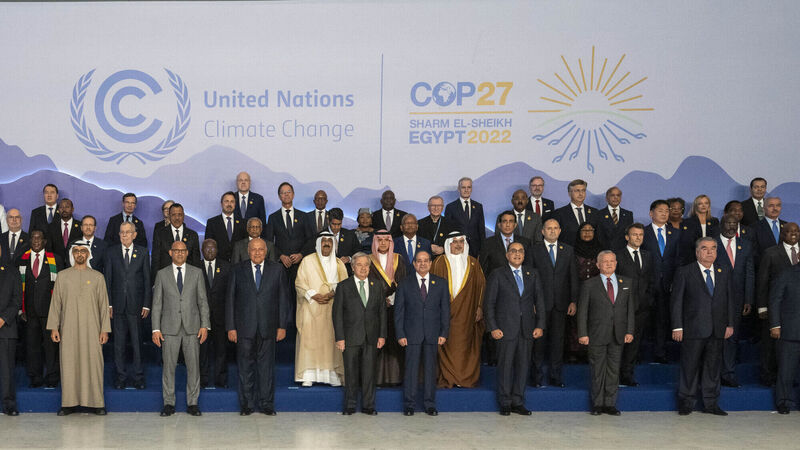'Historic' UN climate compensation deal not enough to tackle climate change

World leaders gathered at the start of the COP27 UN Climate Summit earlier this month. Picture: AP Photo/Nariman El-Mofty
"We have treated some of the symptoms but not cured the patient from its fever."
European Commission president Ursula von der Leyen has said the UN's landmark Cop27 "loss and damage" deal, which will see financial assistance provided to poorer nations stricken by climate disaster, is “a small step towards climate justice”, but more needs to be done.
CLIMATE & SUSTAINABILITY HUB













